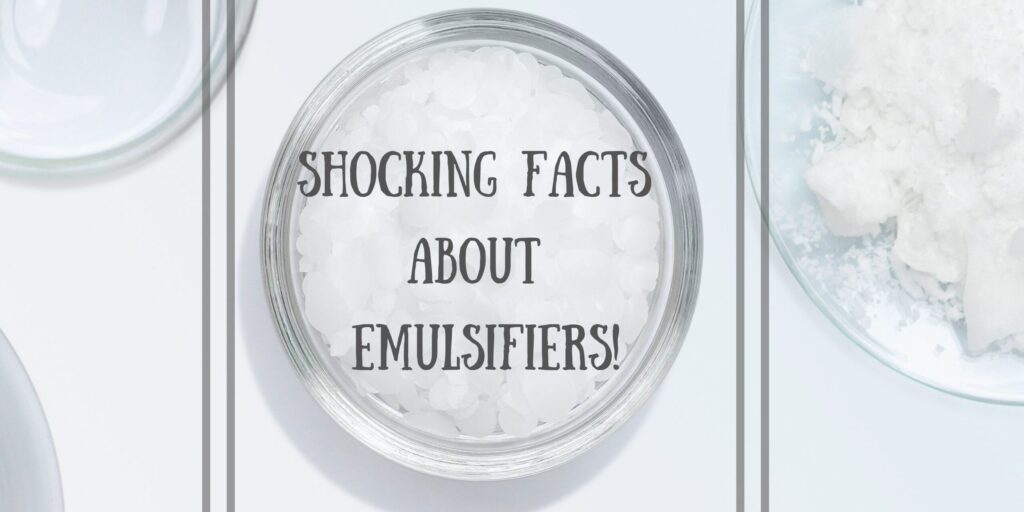Side-effects of Emulsifiers
The side-effects of Emulsifiers, along with their types and uses, are expounded thoroughly in this article. Emulsifiers are food additives permitted by the Food and Drug Administration that aid in combining goods comprising incompatible food ingredients, such as oil and water. Emulsifiers are present in a wide variety of prepared and processed foods, such as baked goods, bread, ice cream, creamy sauces, crackers, cookies, shelf-stable frostings, peanut butter and other nut butter, chocolate, salad dressings, ice cream, meats, margarine, and mayonnaise. Emulsifiers can be synthetic or naturally occurring, and the majority of emulsifiers utilised nowadays are hydrocolloids. Hydrocolloids act as thickening agents and contribute to the structure, texture, flavour, and shelf life of a variety of food products; they are frequently referred to as gums due to the texture and consistency of the food they produce. Emulsifiers derived from plants, animals, and aquatic sources are classified as hydrocolloids. Hydrocolloids derived from plants encompass locust bean gum, carrageenan, pectin, and starch, whilst those derived from animals contain chitosan derived from crab shells. Hydrocolloids, such as xanthan gum, may also be derived from bacteria, and even food products—mustard, oil, salt, egg yolk, and vinegar—can act as emulsifiers.
Common emulsifiers
Several prominent emulsifiers comprise lecithin (322), mono- and diglycerides of fatty acids (471), and esters of monoglycerides of fatty acids (472a-f) as well as 407, 466, 477, 491, 433, 476, 481, and 492. While lecithin (322), which occurs naturally in egg yolks and vegetable oils, is frequently produced from soybean or sunflower oil for use in food processing. Mono- and diglycerides of fatty acids (471) are derived from glycerol and natural fats derived from plant or animal sources. Esters of monoglycerides of fatty acids (472a-f) are synthesised using natural fats, glycerol, and an organic acid, including citric or tartaric acid; usually, the fats are vegetable fats, although they could also be animal fats. The side effects of Emulsifiers entail the ability to harm the skin. Emulsifiers essentially alter the gut’s capacity to discriminate and accept beneficial bacteria while rejecting bad bacteria, which has a negative impact on gut health. The dangerous germs infiltrate the digestive tract and eventually the bloodstream when this mechanism is lost. Inflammation is the human body’s innate reaction to harmful chemicals in order to combat them. When the gut is exposed to emulsifiers on a regular basis, the body produces inflammation, which has a high risk of developing into a persistent intestinal and digestive system illness.
Types of emulsifiers
Guar gum, gellan gum, and carrageenan are three of the most often utilised hydrocolloids nowadays, and Guar gum could be deployed to emulsify, thicken, and stabilise components in a wide variety of food items, including those that require frigid processing temperatures. Guar gum contributes to and maintains the smooth texture of low-calorie dairy and plant-milk products. Gellan gum is a regularly used gelling ingredient that is manufactured from a naturally existent bacterium, and it is capable of producing fluid gels that are blended into a variety of natural dairy and soy-based goods. Additionally, gellan gum is a thickening, binder, and stabiliser. It acts as a stabiliser for water-based gels, such as various sweets and jellies for drinking. Carrageenan is derived from red seaweed and aids in thickening foods by imparting a gel-like consistency to them. Carrageenan is a polysaccharide that is frequently found in milk and dairy-alternative products, most notably flavoured milk and soy milk. This emulsifier forms a molecular bond with the proteins found in animal and plant milk, thereby stabilising their liquid components. Additionally, processed meats may contain carrageenan. Additional research revealed that, in addition to chronic heart, metabolic, and gut illnesses, high consumption of emulsifiers in food increased the incidence of colon cancer, and these are considered the side-effects of Emulsifiers.
Emulsifiers side-effects
Emulsifiers do not affect healthy skin in general; however, emulsifying substances can irritate sensitive skin and increase the symptoms of skin problems like acne, eczema, and psoriasis. On the other hand, emulsifiers can be allergenic and cause rashes and allergic responses on even the healthiest skin. The side-effects of Emulsifiers comprise metabolic syndrome, which is a condition in which the body’s metabolism is disrupted. Several studies on mice found that consuming a lot of emulsifiers in the diet resulted in higher blood sugar levels, insulin resistance, weight gain, and gastrointestinal inflammation. All of these factors combine to develop metabolic syndrome, which affects people by causing them to gain too much weight, have high blood pressure, and lose control of their blood sugar levels. Chronic diseases including inflammatory bowel disease, diabetes, heart disease, and stroke are frequently caused by these difficulties. Food additives, such as emulsifiers, are prevalent in our food supply; thus, customers who are worried about the dangers of these substances should read labels and eat less processed foods.



